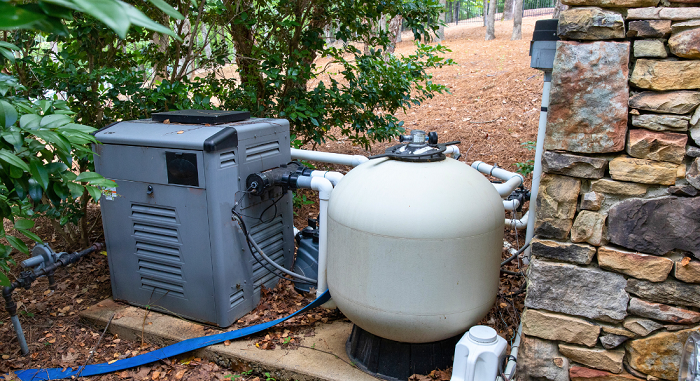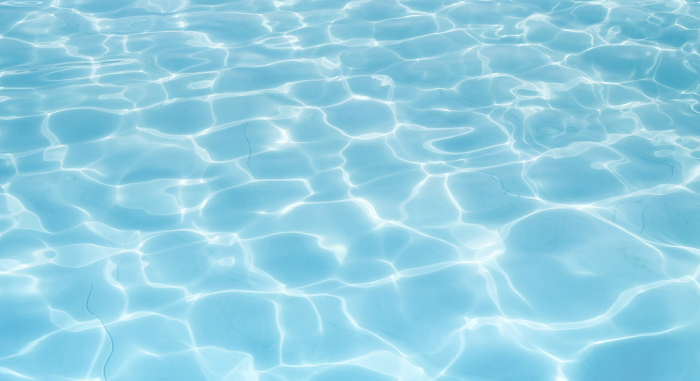If you’re a proud pool owner or someone considering getting an inground pool, you’ve probably heard about saltwater pool systems. These systems have gained popularity in recent years as an alternative to traditional chlorine pools. In this comprehensive guide, we’ll dive into the world of saltwater pool systems, exploring their benefits, maintenance, and everything in between. Whether you’re a seasoned pool owner or a newbie, this article is worth reading to discover the wonders of saltwater pools.
What Exactly Is a Salt Water Pool?
To start our journey, let’s clarify what a saltwater pool is. Essentially, it’s a swimming pool that uses a salt chlorine generator to produce chlorine. Instead of manually adding chlorine, as you would in a traditional pool, a saltwater pool generates chlorine from the salt already in the water. This means you get to enjoy the benefits of chlorine without the hassle of handling chlorine tablets or liquid.
How Does a Salt Water Pool System Work?
Now that you know the basics, let’s delve deeper into the inner workings of a saltwater pool system. These systems use a salt cell, which is installed in your pool’s circulation system. The cell contains special plates that produce chlorine when an electrical current is applied. This chlorine then sanitizes the pool water, keeping it safe and clean for swimmers.

Benefits of Salt Water Pools
Saltwater pools offer several advantages over traditional chlorine pools. One of the most significant benefits is the reduced need for manual chlorination. Here’s a closer look at some key benefits:
- Gentler on Skin and Eyes: Salt water pools typically have lower chlorine levels, making them gentler on your skin and eyes.
- Low Maintenance: Once set up, saltwater pools require less ongoing maintenance compared to traditional pools.
- Cost-Efficient: While the initial installation cost may be higher, you’ll save money in the long run on chlorine products.
- Consistent Chlorine Levels: Saltwater systems provide a steady supply of chlorine, ensuring your pool stays clean.
- Soft, Silky Water: Many pool owners love the feel of salt water – it’s similar to a day at the beach!
Pool Maintenance for Salt Water Systems
While saltwater pools are easier to maintain than traditional pools, they do require some care. Regular pool maintenance tasks like skimming, vacuuming, and cleaning the pool filter are still necessary. Additionally, you’ll need to monitor your pool’s salt level and chlorine output to ensure optimal performance.
Chlorine vs. Salt Water Pools: Pros and Cons
Let’s compare the two main types of pools: chlorine and salt water. Understanding the pros and cons of each can help you make an informed decision when it comes to pool ownership.
Chlorine Pools:
- Pros: Affordable upfront, easy to shock your pool, widespread availability.
- Cons: Frequent chlorine level monitoring, potential skin and eye irritation, and the odor of chlorine.
Salt Water Pools:
- Pros: Lower maintenance, gentle on skin and eyes, cost-efficient in the long run.
- Cons: Higher initial installation cost, occasional need to add salt, may require adjustments to water chemistry.
Choosing the Best Salt Water Pool System
When selecting a saltwater pool system, it’s crucial to consider factors like the size of your pool, your budget, and your preferences. Look for systems that include a reliable salt cell and ensure it’s suitable for your pool’s volume. Additionally, consider reputable brands like Hayward, CircuPool, and others known for their quality salt chlorinators.
Adding Salt to Your Pool: A Step-by-Step Guide
If you’re new to saltwater pools, you might wonder how to add salt to your pool. Don’t worry; it’s a straightforward process. Here’s a quick guide:
- Determine the amount of salt needed for your pool size.
- Distribute the salt evenly over the water’s surface.
- Turn on your pool’s circulation system to help dissolve the salt.
- Wait for the salt to dissolve completely, which may take a day or two.
- Monitor your pool’s salt level and adjust as needed.
Common Myths About Salt Water Pools
There are some misconceptions about saltwater pools that we need to address. Let’s debunk a few common myths:
- Saltwater pools are as salty as the ocean: False. The salt concentration in saltwater pools is much lower than in seawater.
- You don’t need chlorine in a saltwater pool: False. Saltwater pools produce chlorine but still require chlorine for sanitation.
- Saltwater pools are maintenance-free: False. While they require less maintenance, regular care is essential for optimal performance.
Solving Common Salt Water Pool Issues
As with any pool system, saltwater pools can encounter problems. Here are some common issues and how to address them:
- Low chlorine levels: Check your salt cell and ensure it’s functioning correctly. You may also need to add salt.
- High pH levels: Use pool chemicals to lower the pH.
- Cloudy water: Check your filter and clean it if necessary. Adjust the water chemistry as needed.
Conclusion: Enjoy Your Crystal-Clear Water
In conclusion, saltwater pool systems offer a fantastic alternative to traditional chlorine pools. They provide a more comfortable swimming experience, lower maintenance demands, and long-term cost savings. By understanding how these systems work and following proper maintenance guidelines, you can enjoy your pool with crystal-clear water year-round.
Remember these key takeaways:
- Saltwater pools use a salt chlorine generator to produce chlorine.
- Regular maintenance is still required for saltwater pools.
- Choose the right saltwater system for your pool’s size and your budget.
- Enjoy the benefits of gentler water and lower long-term costs with a saltwater pool.
Now that you’re armed with knowledge about saltwater pool systems, you can make an informed decision about your pool ownership journey. Dive in and enjoy the refreshing world of saltwater pools!
FAQ
What is the downside of a salt water pool?
While salt water pools offer many benefits, they also have some downsides to consider:
- Corrosion: Salt water can accelerate corrosion of metal components in and around the pool, including pool equipment and nearby fixtures.
- Initial Cost: The upfront cost of installing a salt water system is typically higher than that of a traditional chlorine pool.
- Maintenance: While maintenance is generally easier with a salt water pool, there are still regular tasks required, such as monitoring salt levels and cleaning the generator cell.
- Environmental Impact: Salt water pools may have a higher environmental impact due to the energy consumption of the chlorine generator and the discharge of salt into the environment when backwashing the pool.
Is it cheaper to run a salt water pool?
In the long run, salt water pools can be cheaper to run compared to traditional chlorine pools. Although the initial installation cost is higher, salt is cheaper than traditional chlorine, and there’s less need for additional chemicals. Additionally, salt water pools typically require less maintenance, resulting in potential savings on labor and maintenance costs over time.
How does a salt water pool system work?
A salt water pool system uses a chlorine generator, also known as a salt chlorinator, to produce chlorine from dissolved salt in the pool water. Here’s how it works:
- Salt is added to the pool water at the beginning of the season or as needed to maintain the desired salt level (typically around 3,000-4,000 parts per million).
- The pool water passes through the chlorine generator, which uses electrolysis to break down the salt molecules into hypochlorous acid (chlorine).
- The chlorine produced sanitizes the pool water by killing bacteria and algae.
- The chlorine level is regulated automatically by the salt chlorinator based on the pool’s demand, ensuring a consistent level of sanitation.
Is a salt water pool worth it?
Whether a salt water pool is worth it depends on individual preferences and circumstances. Some factors to consider include:
- Initial Cost: Salt water pools have a higher upfront cost compared to traditional chlorine pools.
- Maintenance: While maintenance is generally easier with a salt water pool, there are still tasks involved, such as monitoring salt levels and cleaning the chlorine generator cell.
- Comfort: Salt water pools are often praised for their softer feel and lack of strong chlorine odor, which may be preferable for some swimmers.
- Environmental Impact: Salt water pools may have a lower environmental impact due to reduced chemical usage and fewer harmful disinfection byproducts.
Ultimately, whether a salt water pool is worth it depends on factors such as budget, maintenance preferences, and desired swimming experience.


